The 10th Bonjour Brand Forum was held at UNESCO Headquarters in Paris on June 21st, with the theme “The Standing of Brands on the Global Stage”. This forum focused on brand culture, culture-driven innovation, and brand globalization. It facilitated dialogue among over 500 leaders from the Sino-French political and business communities, as well as CEOs, CMOs of leading global brands, renowned creatives, media representatives, and opinion leaders, promoting brand collaboration and cultural innovation.
The year 2024 marks the 60th anniversary of diplomatic relations between China and France and the China-France Year of Culture and Tourism. The Bonjour Brand Forum, initiated in 2014, has now reached its 10th edition. Over the past decade, Bonjour Brand Forum has provided a platform for cultural dialogue and innovative cooperation through various activities in both China and France. The forum commenced with an opening speech by its honorary chairman, former French Prime Minister and President of the “Fondation Prospective et Innovation”, Jean-Pierre RAFFARIN: “Design is a commitment for brands, a reflection of brand identity, and a channel for cross-border communication. The role of design is crucial for the brands; design is culture, and the brand creates communication. It has been a privilege to accompany the Bonjour Brand Forum for ten years, witnessing the development of design and brands between China and France, as well as Jing YANG’s achievements in fostering creative cooperation between the two countries over the past decade.”
In this context, Bonjour Brand and the World Federation of UNESCO Clubs and Associations (WFUCA) announced the launch of the “Bonjour Youth” – Global Youth Creativity Support Program during the forum. This program aims to create a global support platform by collaborating with cities and brands worldwide. It seeks to provide young people with opportunities in design, creativity, technology, and the arts, fostering and nurturing their innovative capabilities. By using creativity to facilitate cultural dialogue between different countries, the program aims to promote cooperation and development in the design and creative industries worldwide.
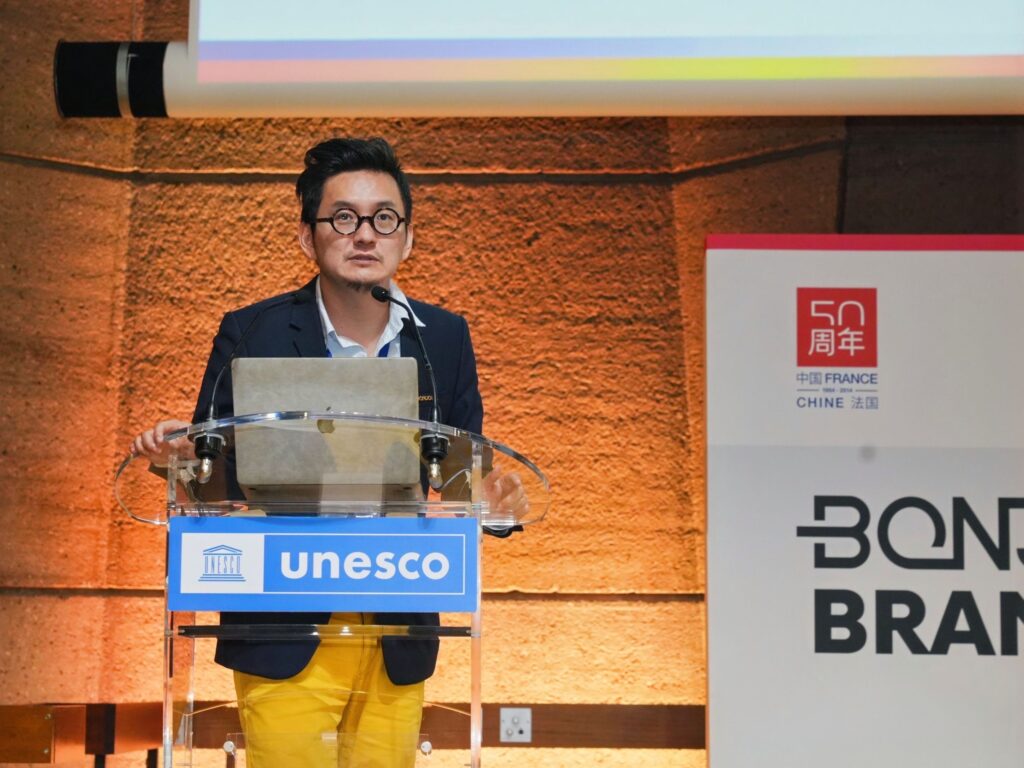
President Jing YANG said at the project’s launch: “For over ten years, Bonjour Brand has been dedicated to fostering creative cooperation between China and Europe. We hope that through this collaboration with WFUCA, young people will be able to find their future and discover more possibilities.”
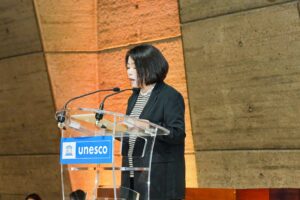
Sunjoo LEE, President of the Asian-Pacific Federation of Clubs and Associations for UNESCO, delivered a speech at the signing ceremony. She stated: “It is a great pleasure for me to welcome all of you to this great signing ceremony. The partnership between Bonjour Brand and WFUCA signifies profound synergy, where our collaborative effort will amplify the voice of diverse cultures, encourage people to harness creative talent worldwide, and we will be dedicated to advancing UNESCO’s ideals, advocating peace, education, science, and culture.”
“Bonjour Brand, with its commitment to cultural enrichment, perfectly complements our mission. As we embark on this journey together, we anticipate numerous opportunities to showcase and celebrate richness and cultural diversity. Our collaboration will pave the way for innovative projects, cultural exchanges, and creative initiatives. By leveraging the strengths of and inspiring both WFUCA and Bonjour Brand, we will create a vibrant ecosystem of natural creativity, foster mutual understanding, and promote cultural dialogue. As we sign this agreement today, let us remember, that we are forging a bond that will resonate across the world. Together, we will champion cultural diversity, ensuring that it remains a source of inspiration, unity, and strength. Let us look forward to a future filled with creative collaborations and cultural celebrations.”
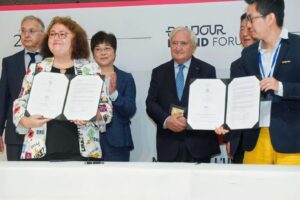
Afterward, President Jing YANG and Daniela POPESCU, Vice President of WFUCA, signed the agreement on-site. Ms. POPESCU then delivered a speech saying: “On behalf of WFUCA, I would like to thank you all for your warm welcome. It is an honor for us to become future partners with Mr. President YANG.”
“The concepts of Yin and Yang originate from Chinese philosophy and metaphysics. They describe how seemingly opposing forces can be complementary, interconnected, and interdependent in the natural world, and how they can give rise to each other in their relationship. Welcome to our WFUCA and the embodiment of the Yin-Yang concept. Let us celebrate creativity, innovation, and the joys of creating together.”
The signing ceremony was witnessed by former French Prime Minister Jean-Pierre RAFFARIN; YANG Xinyu, Ambassador of the Permanent Delegate of China to UNESCO; DU Yue, Secretary-General of World Federation of UNESCO Clubs and Associations; and Andrei Chevelev, Ex-head of the Asia-Pacific Unit Sector for Priority Africa and External Relations of UNESCO.
The ceremony was also attended by Anne-Marie SARGUEIL, President of Institut Français du Design; Clement DEROCK, President of the Intuit Lab School; and Chinese brand representative Pechoin.
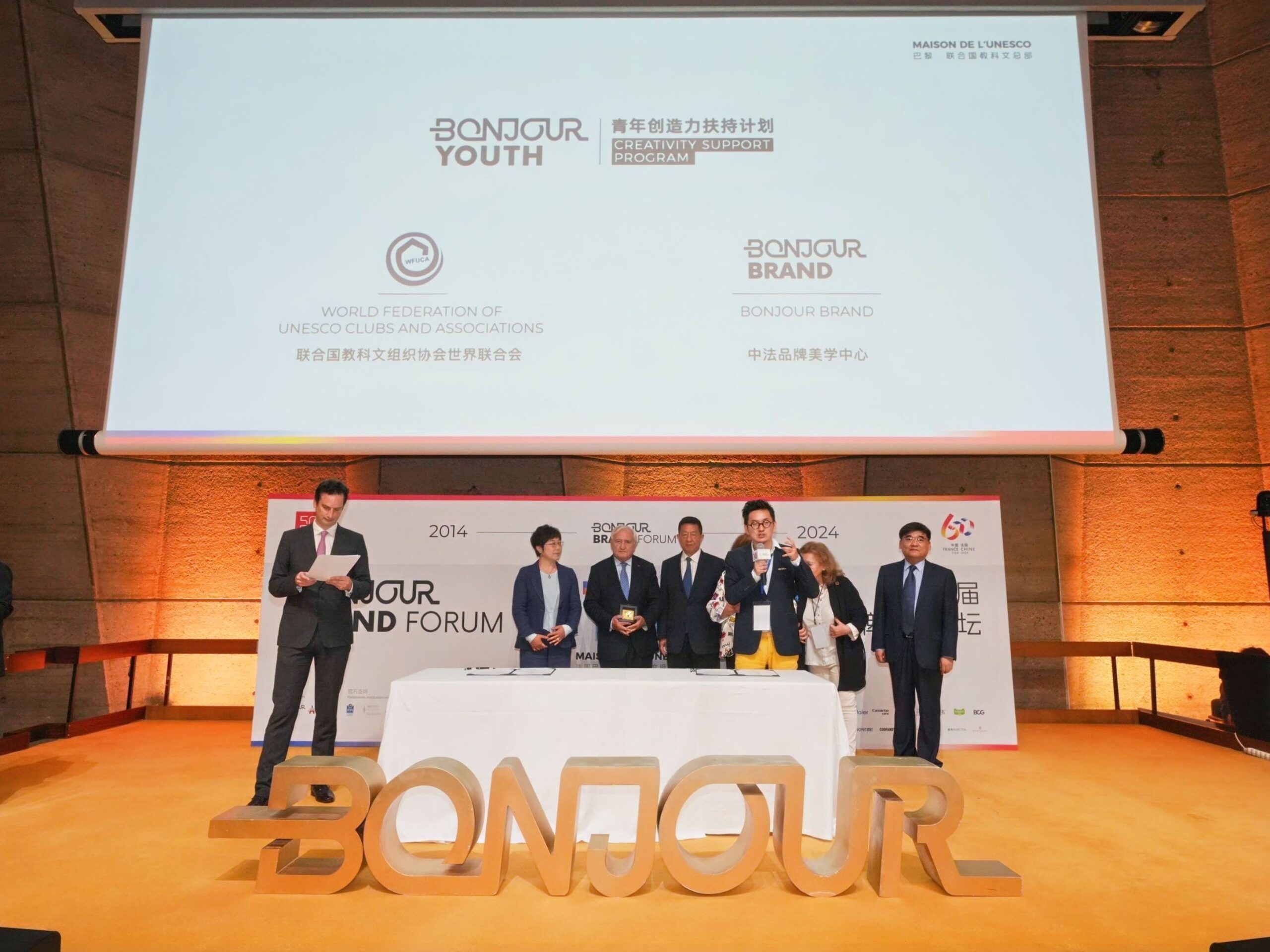
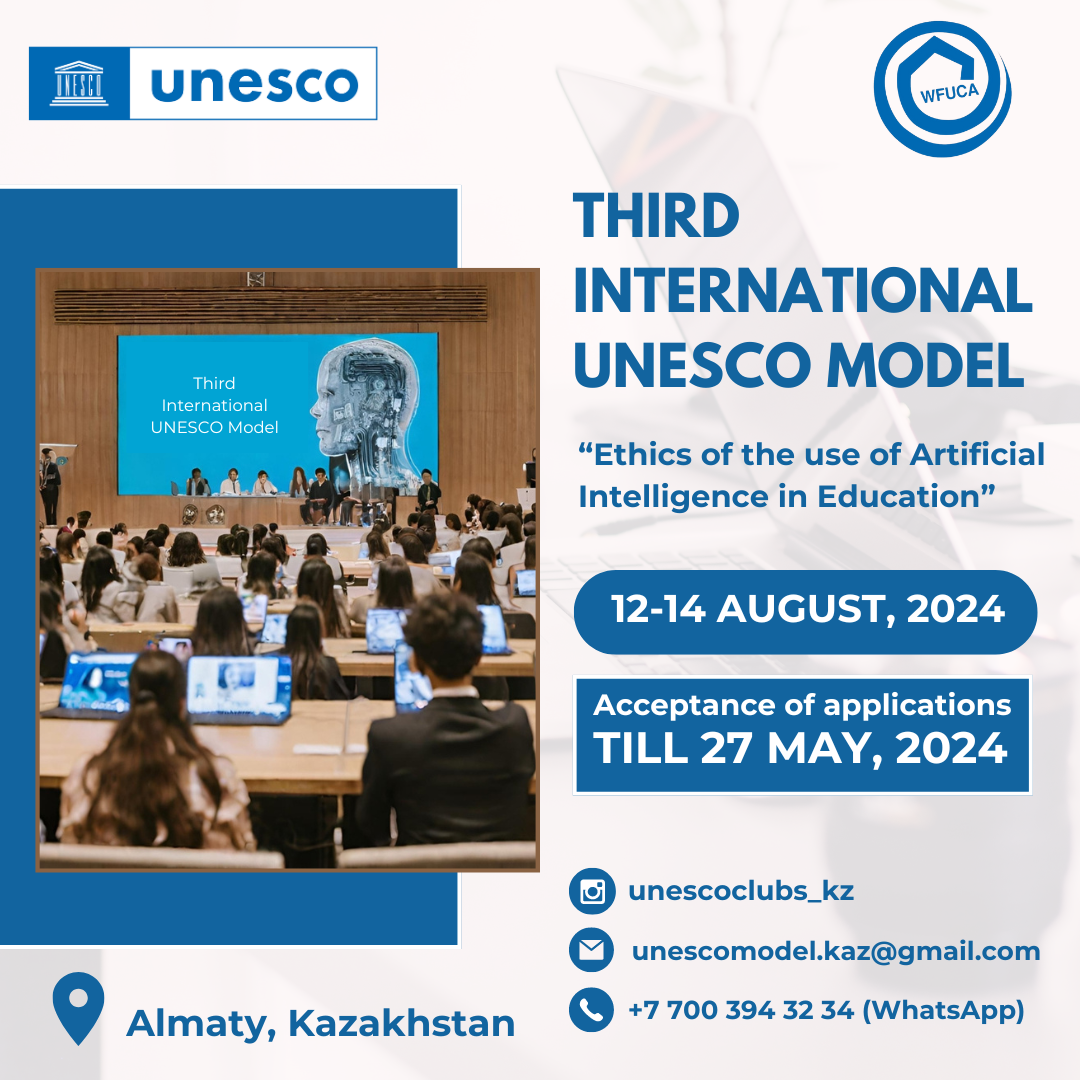
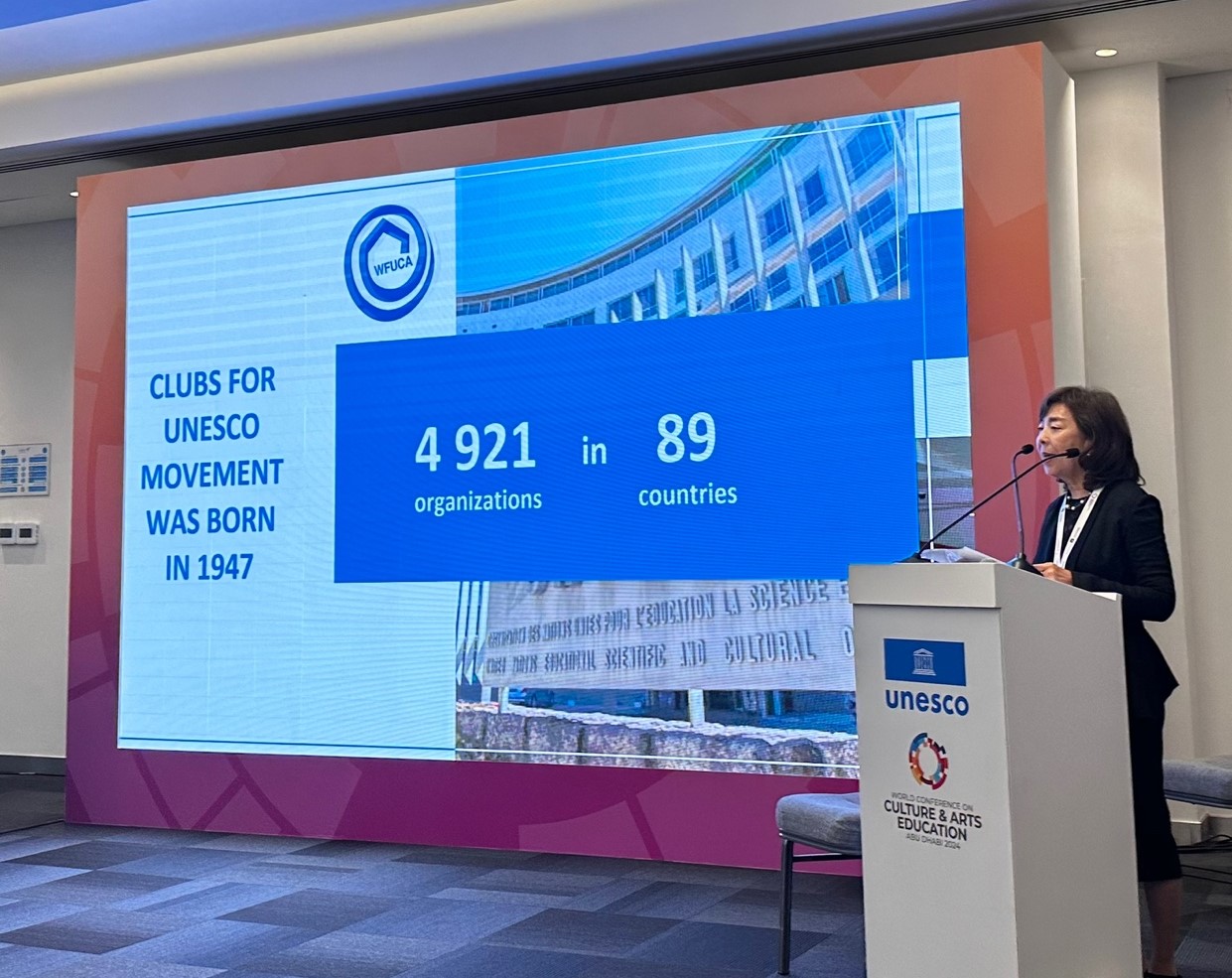




 Artist Augusto FOLDI creates his art at the Castle Swan
Artist Augusto FOLDI creates his art at the Castle Swan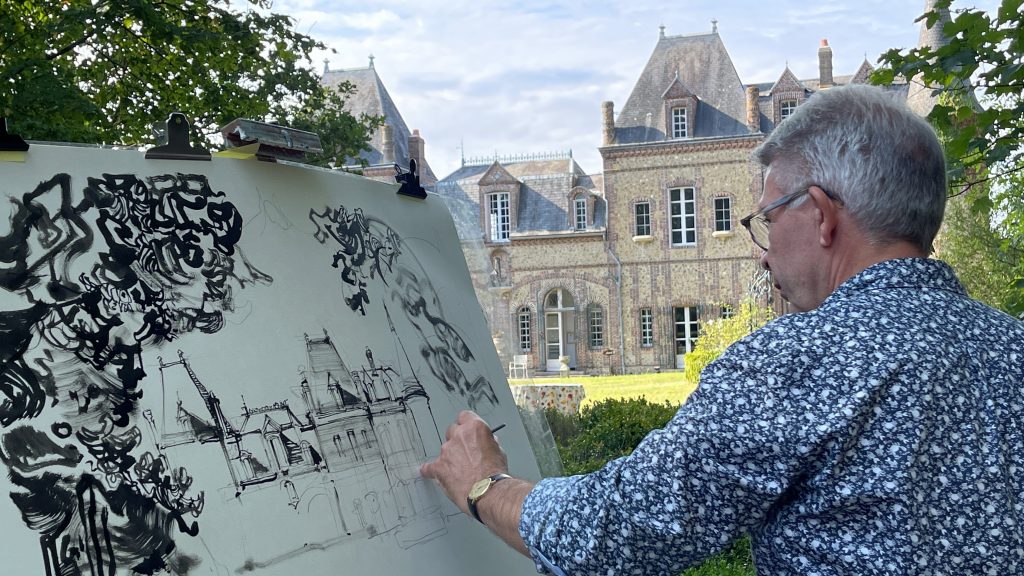 Artist Christophe RONEL creates his art at the Castle Swan
Artist Christophe RONEL creates his art at the Castle Swan